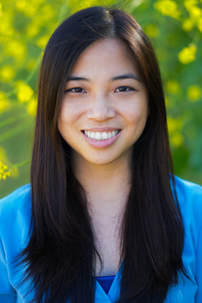|
©Michelle Chan Since I am frequently asked by those not in the mental health field how one becomes a Marriage and Family Therapist (MFT), I thought I'd share some of my experiences in my journey to becoming a licensed MFT.  ©Michelle Chan ©Michelle Chan While I had obtained a bachelors in Psychology, I believe some graduate schools may accept applicants who have obtained a B.A. in a Psychology-related field or had taken some core psychology college courses. After graduating from college, one of the biggest question I had yet to answer was, "What do I want to be when I grow up?" While I knew I wanted to be in the mental health field, there were so many directions in which to choose from. To ensure that I was making the right career choice for me, I took time to gain some valuable work experience, research various career paths, and did some soul-searching along the way. During my time off, I worked as a Behavioral Management Consultant, where I not only had the opportunity to work with children who had been diagnosed with Autism or Mental Retardation, but with their families as well. While I found the work extremely rewarding, I saw first-hand how these disorders not only affected the children, but their parents and family members as well. I started to realize how important it was to engage family members in treatment, because it is only with their help and support that lasting change can be made. I saw how the change in one individual can alter the entire family's dynamics. That's when I became fascinated with the field of Marital & Family Therapy, which focuses on relationships and their impact on each and every one of us. I applied to both private and public graduate schools that interested me. Most required a certain GPA, letters of recommendation, interview(s), a personal statement, and long responses to specific questions (i.e. your interest in the program they're offering, reasons why you're pursuing this field, etc.). Some graduate schools did require me to take the GRE and one required me to take a basic writing exam at the school to display my writing abilities. When applying, I paid close attention to what was required in order for me to complete the graduate program at each school, since they can vary. Some schools required their students to write a thesis and/or pass a comprehensive exam by the end of the program. All schools required a certain number of practicum hours (i.e. time spent volunteering while gaining experience as a therapist) to be completed prior to graduating, with most requiring about 200 direct client contact hours. In the end, I chose a school that required 500 direct client contact hours (250 of which had to be with couples or families), 100 hours of supervision, and 50 hours of professional development activity (i.e. attending seminars/workshops, obtaining personal therapy). So you might wonder, "Why didn't you choose a school that required 200 hours versus 650 hours?" Of course, choosing a school is a very personal choice. The reason I chose the school that I did was because I felt that the program would provide me with a strong foundation to becoming the best therapist I can possibly be. My first year of graduate school mainly consisted of me attending classes, learning about different theories of therapy, therapy techniques, diversity issues, family issues, law & ethics, diagnoses, etc. My second year of graduate school consisted of more classes (i.e. practicum, assessments, research, couples therapy, etc.) in addition to gaining practicum hours at two practicum sites as a "MFT Trainee." (I had interviewed at a few practicum sites that had a working relationship with my school, and ended up choosing two.) During that time, I had the privilege of working with children, teens, adults, families, and couples. Not only that, I had the opportunity to facilitate and co-facilitate classes, and lead a social skills group for children. Upon passing all of my coursework, completing all the required practicum hours, and passing my comprehensive exam, I was able to graduate. By the time I graduated, I was either close to or had reached the maximum number of hours (1,300 hours to be exact) that a MFT Trainee was allowed to accrue. Within 90 days of graduating, I had to complete a registration packet in order to register as an intern with the Board of Behavioral Sciences (BBS). Once the BBS approved my application, I was then an "MFT Intern." As an MFT Intern, I continued to work under a licensed supervisor while providing treatment to clients and gaining my hours toward licensure. In order to become licensed, MFTs need to obtain a combined 3,000 supervised hours of experience while fulfilling all the different categories. By the time I fulfilled all the requirements of the different categories, I had done a lot more than just 3,000 hours. The reason being that once you reached the maximum number of hours in a certain category, additional hours do not count toward the 3,000 hours. One more thing, even though I worked as a full-time therapist (40 hours/wk), not all 40 hours counted towards the 3,000 hours each week. I think on average, it was more like 20-25 hours. As you can imagine, it took a few more years AFTER graduating before I was able to complete the 3,000 required experience hours. [Additional info. can be obtained through the BBS website at http://www.bbs.ca.gov/app-reg/mft_presentation.shtml] Once I completed my 3,000 hours and fulfilled all the different categories, I had to complete and send in an application to the BBS stating I had completed all of my hours and had taken all of the required courses. Once the BBS approved my application (which took an additional 6-7 months), I was eligible to sign up for the first board exam, the Written Standard Exam. If you pass the exam, you are then eligible to sign up for the second, and last, board exam, the Clinical Vignette Exam. However, if you fail the Written Standard Exam, you must wait 6 months before you are allowed to retake it. Same for the Clinical Vignette Exam. After passing both exams, I sent in an application (and a check) to apply for my license. Once it's received by the Board of Behavioral Sciences... TA-DA! Licensure! Piece of cake, right? Haha. Despite some of the challenges and frustrations along the way, I would do it all over again if I had to! *Based on personal experience in the state of California. Current requirements may be different as a result of changes made by the Board of Behavioral Sciences. "There are no shortcuts to any place worth going.” –Helen Keller
1 Comment
|
Michelle Chan, M.A., LMFT Archives
May 2021
Categories
All
|

 RSS Feed
RSS Feed